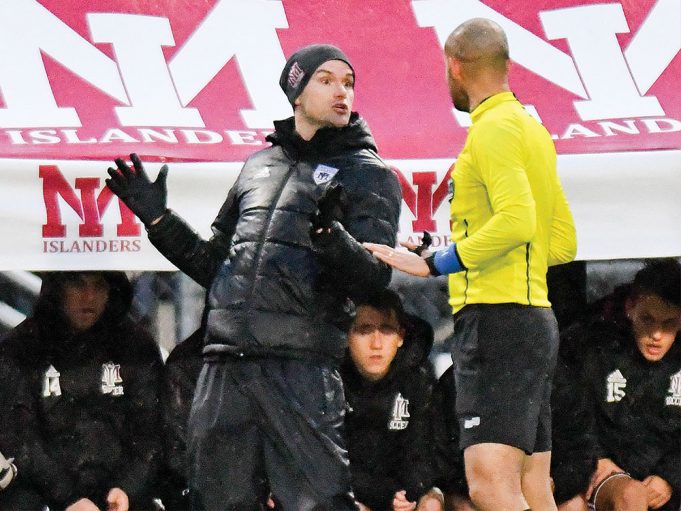Many of you have heard or read about and have an opinion on the Serena Williams outburst during the U.S. Open tennis tournament recently. To referees, there is a teaching lesson in blow-ups. To referee administrators, there is an even bigger lesson to be learned.
All sports have some sort of penalty enforcement — basketball’s technical foul, baseball’s restricting a coach to the dugout, water polo’s 30-second man-down, soccer’s yellow card. Just as a soccer referee would, the chair umpire saw coaching (an infraction) and issued a warning. When there was a second act of misconduct, the point penalty was imposed (soccer’s equivalent to the Ask). With the third infraction — a long, loud outburst filled with demands and threats — a game penalty was issued (soccer’s equivalent to the Tell or a yellow card). The tennis “red card” is a match penalty.
From the Internet, I got this Williams quote: “You owe me an apology. You will never be on a court with me as long as you live. You are the liar. You owe me an apology.” (Emphasis added.)
As the former Referee soccer coordinator, I wrote several times over nearly two decades that when a coach uttered, “I will make sure you never work here again,” it was an automatic. Players, opposing coaches and fans must never be left to believe that a coach controls the referee’s schedule. Not in soccer, not in baseball, not in professional tennis. My thinking is that I would dismiss the coach and let the administrators figure out if I would go back to that school or conference. Now professional tennis has that decision to make.
My first assigner.
Times have changed, admittedly. But in the late 1970s, in a competitive youth league from U-10 to U-18, the assigner made sure that coach saw that referee a minimum of five times — in a row. Based on how things progressed over that month, the coach might see a new referee. (The same assigner also scheduled the adult league — with the same policy.)
In the 1980s, I scheduled three sports on U.S. military bases in Europe. The entire available pool of referees numbered below two dozen. We simply did not have the luxury of listening to coach’s demands! So, following my first assigner’s “policy,” that coach saw that referee three games in a row. In the 1990s, I worked in rural Texas over a 10-county area, and again, we simply didn’t have enough referees to allow coaches to “blackball” a referee. They took who they got — or they got none. Scheduling 1,500 games in downtown Dallas, and drawing from a pool of 1,100 North Texas referees allows those assigners some leeway.
If you are that referee.
It’s a blank slate. It’s in the past. Neither you nor the coach can change the last contest. Don’t be the first to say anything about the earlier contest. If the coach or player does, a very neutral, “It’s a new day” or, “Let’s start fresh” is perhaps the best reply.
Try to figure out where the emotion came from — did you misapply a rule in the earlier contest? Did you issue a “soft” red card? Was a star player injured? Was the frustration from the team’s poor play — conference champion losing to the last-place team? Fix what can be fixed.
A thorough pregame is needed. Your two or three partners need to know about the past. You need to think ahead and prepare for what could happen — think through the possibilities. Talk. Ask for their help. Breath. Relax. Warm up together. Stretch. Be ready for the demands of the game. Project confidence but not cockiness. Be mechanically sound. Use your whistle, hand gestures and facial features well. Get plenty of eye contact with your partners. Take care of your partners — don’t let the teams or coaches direct “the heat” to your partners without you taking action. Have a very comprehensive halftime discussion, not only about the first half but look ahead to what might happen in the second half. Have fun. Postgame, talk about what happened.
It’s not easy to “go back” to where you had a difficult time with a player, coach or team. Strong administrators will know if you have the skill set, personality and attitude to return. They may want to give you a “vacation” for a few weeks to let the heat die down. But your learning curve increases dramatically if you get back in the saddle.
What's Your Call? Leave a Comment:
Note: This article is archival in nature. Rules, interpretations, mechanics, philosophies and other information may or may not be correct for the current year.
This article is the copyright of ©Referee Enterprises, Inc., and may not be republished in whole or in part online, in print or in any capacity without expressed written permission from Referee. The article is made available for educational use by individuals.


















